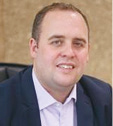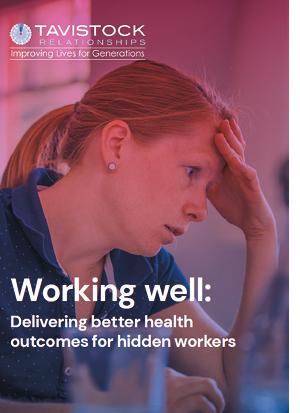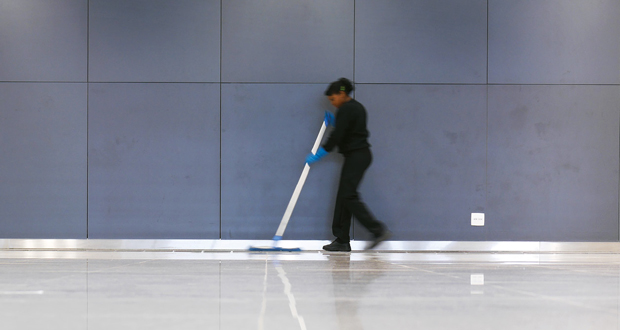 Sara Bean talks to Mark Tyson, Head of Property Operations at LGIM Real Assets on how the real estate industry can address a health and wellbeing gap amongst the UK’s hidden workers
Sara Bean talks to Mark Tyson, Head of Property Operations at LGIM Real Assets on how the real estate industry can address a health and wellbeing gap amongst the UK’s hidden workers
Facilities management and corporate real estate could be said to represent a microcosm of society. On the one hand it provides workplaces and amenities to knowledge workers employed by multimillion-pound institutions. However, this requires the deployment of cleaners, maintenance and security staff, many of whom may be struggling to cope with low wages and unsociable hours.
In an effort to delve deeper into this disparity Legal & General commissioned a piece of research in partnership with charity Tavistock Relationships to uncover health inequalities in businesses across the UK.
The final report, Working Well: Delivering Better Outcomes for Hidden Workers based on quantitative and qualitative analysis of those working in a range of different sectors – predominantly in cleaning and housekeeping, catering and security – reveals a variety of factors affecting physical and mental health:
- More than half of respondents worked nine hours a day, and a third 11 hours or more a day, which had a direct impact on mental and physical health and on their relationships with partners, children, an
 d their wider families and communities.
d their wider families and communities. - Many workers do not receive pay if they attend a hospital, GP or other health appointment. Fear of losing pay or appearing weak or unreliable prevents them from asking for time off to look after their health.
- Very few respondents had accessed counselling or advice services and were unaware of how they could access these services.
Mark Tyson, Head of Property Operations at LGIM Real Assets was part of the project team behind the report. He got involved with the Tavistock report off the back of another piece of work by Sir Michael Marmot, Director of the University College of London (UCL) Institute of Health Equity (IHE) and Professor of Epidemiology who has examined how improvements to the design and construction of towns and cities can help to address health inequalities.
He explains: “I got drafted in for an opinion, because we’re a big landlord and employ a lot of people in those roles and I saw the opportunity to deal with something which has been on the table for a number of years.
“We’ve got a very different view on the people who work in our buildings since the pandemic. There have been stories of cleaners and security officers going above and beyond. Cleaners for example kept places running, especially in essential buildings like hospitals and this increased our appreciation of those roles.
“We knew we needed to do more and the fantastic thing about L&G is that they don’t shy away from a social value topic. We felt we should interview these guys, get some real stories and address the issues. We wanted to ask, post-pandemic, ‘what more can we do to support people with their physical and mental health?’”
As the report makes clear, promoting and supporting better health and wellbeing to ensure a better quality of life among this group of workers is not just good for the workers, it is good for businesses and for society as a whole. Employers and crucially, the FM sector has the means to make a difference and given the impact of the pandemic and the cost of living crisis has more of a moral responsibility than ever to act as advocates for change.
Says Tyson: “We can’t keep looking the other way from the people within these roles. All the data says to us it’s a tough life and health outcomes are not optimal. You’ve also got this squeezed middle tier, including shift supervisors and cleaning managers that seem to get left out in this conversation. Is it acceptable they get just 10p more than a cleaner?”





